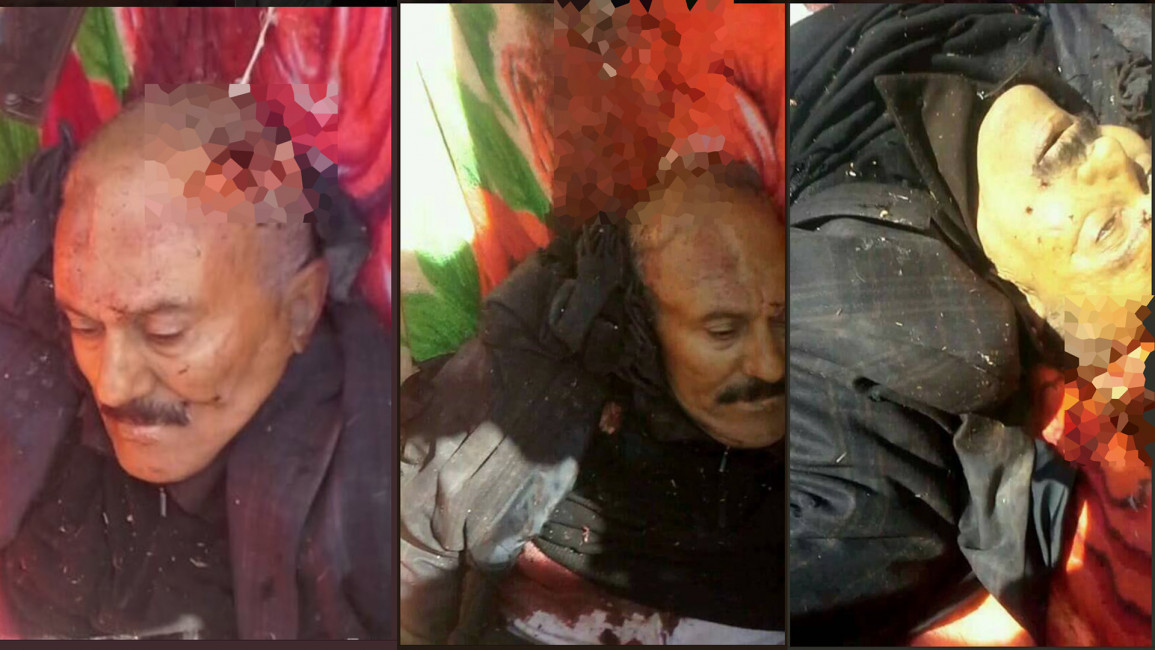Ali Abdullah Saleh, former Yemen president, confirmed dead
Yemeni strongman and ex-president Ali Abdullah Saleh was killed on Monday as he fled the capital, Sanaa, the Houthi rebels have announced.
The Houthi-controlled interior ministry said the "treasonous leader had been killed along with a number of his supporters".
A senior official in Saleh's political party told reporters that Saleh was killed when Houthi rebels attacked his convoy south of the capital as he attempted to flee to his hometown of Sanhan.
A senior official with Yemen's internationally recognised government confirmed that Saleh had been killed.
Video footage widely circulated on social media shows Saleh's dead body wrapped in a floral-print blanket with a gunshot wound to the head.
Saleh on Saturday announced the end of his alliance with the Houthi rebels, with whom he has jointly ruled the capital for three years.
The 75-year-old strongman ruled Yemen for more than three decades, until his ousting under popular and political pressure in 2012.
He remained in the country, however, and continued to wield power from behind the scenes. In 2014, his forces allied with the Houthis despite the fact that, as president, he had gone to war with them on more than one occasion.
Yemeni President Abedrabbo Mansour Hadi ordered his forces on Monday to retake Sanaa from Houthi rebels, after the insurgents destroyed Saleh's home in the capital.
The order came as a three-year alliance between the Iran-backed Houthis and forces loyal to ex-president Saleh collapsed into gun battles in Sanaa.
Earlier on Monday, Hadi's internationally recognised government said it would grant amnesty to anyone who cut ties with Houthi rebels.
Fighting erupted between the rebels and forces loyal to Saleh last week, unravelling their fragile alliance, formed in the face of the internationally recognised government and Saudi-led coalition.
Saleh on Saturday announced he was open to talks with Saudi Arabia and its allies on condition they ended their crippling blockade on Yemen's ports and airports - dealing a serious blow to his already fragile alliance with rebel chief Abdul Malik al-Houthi.
Since 2014, Sanaa has been ruled under an agreement between Saleh and the Houthis, who drove the Hadi government out of the capital, set up their own government and for two years fought the Saudi-led coalition together.
The Saleh-Houthi split has sparked fears of a new front in the Yemen war, which has already claimed more than 8,750 lives since the Saudi-led coalition joined the war to support the Hadi government.
The conflict has pushed Yemen to the brink of mass starvation and triggered what the United Nations has called the world's worst humanitarian crisis.



